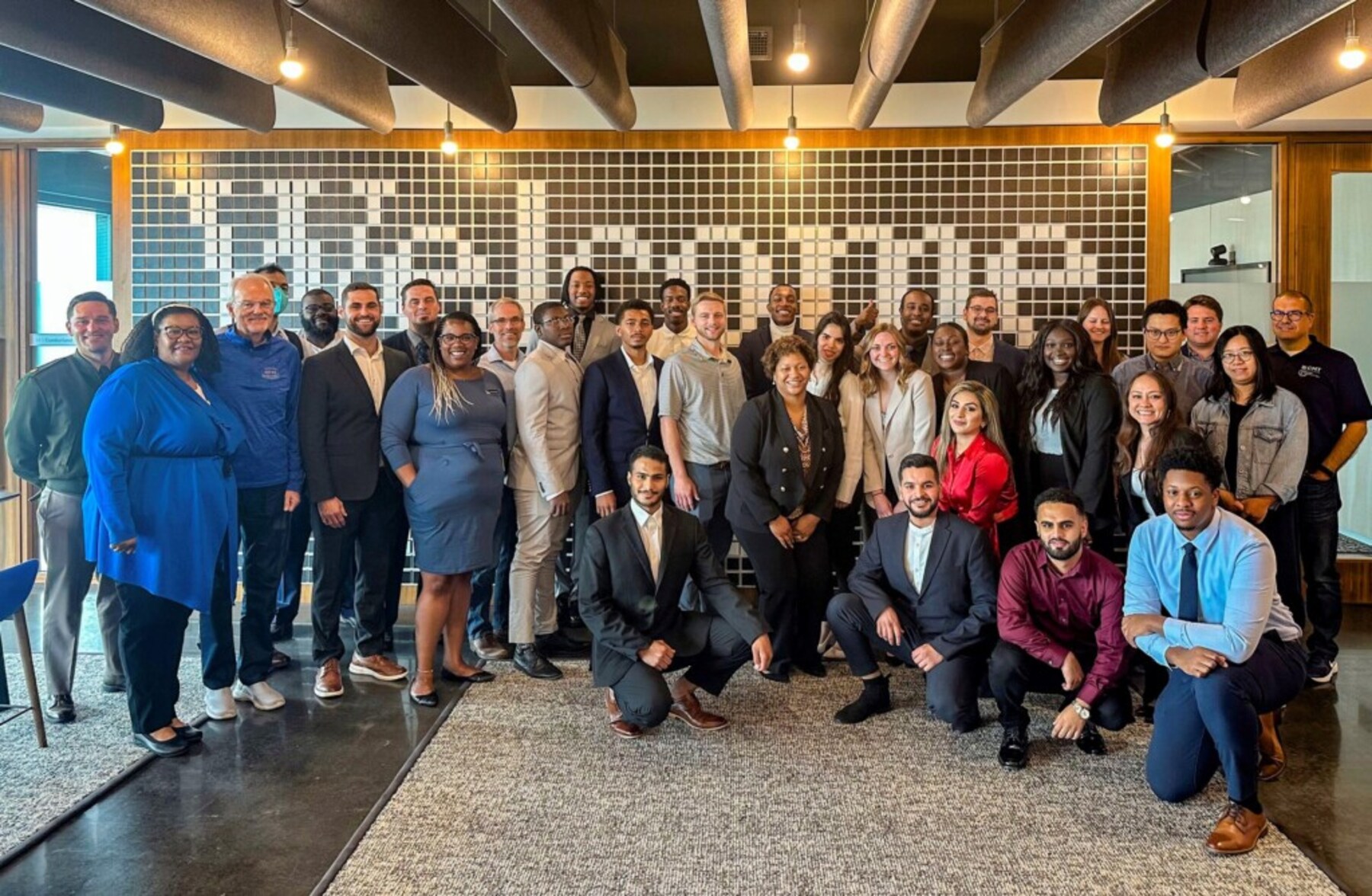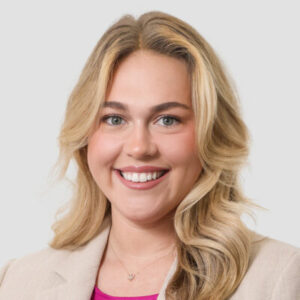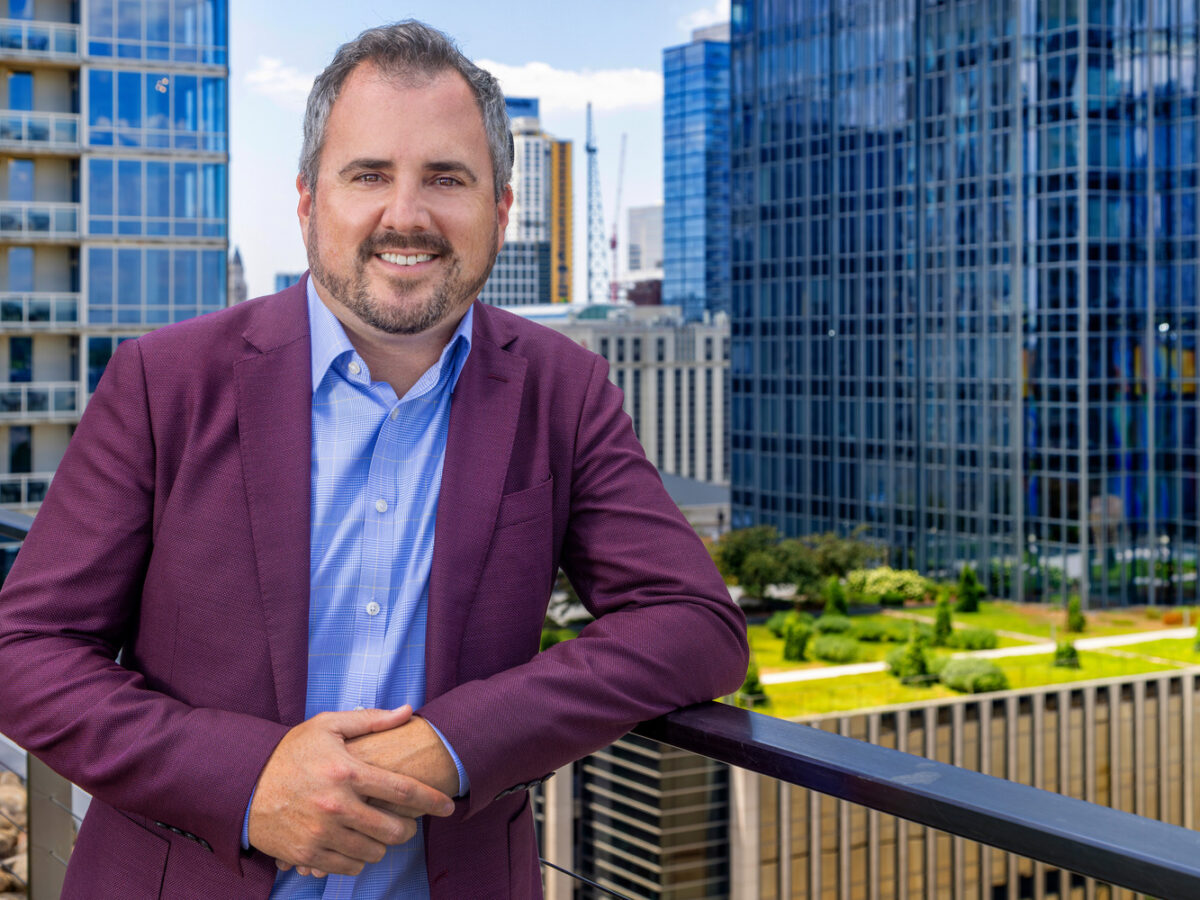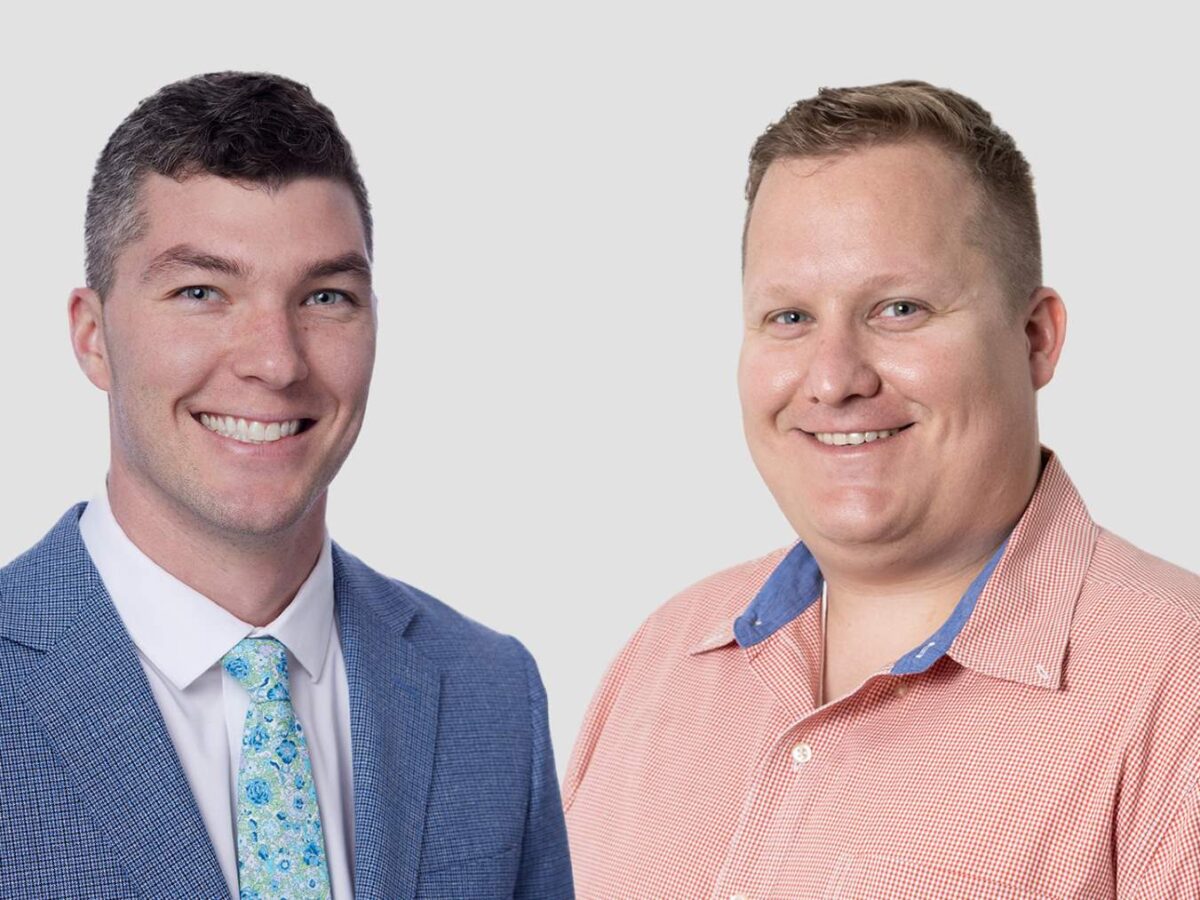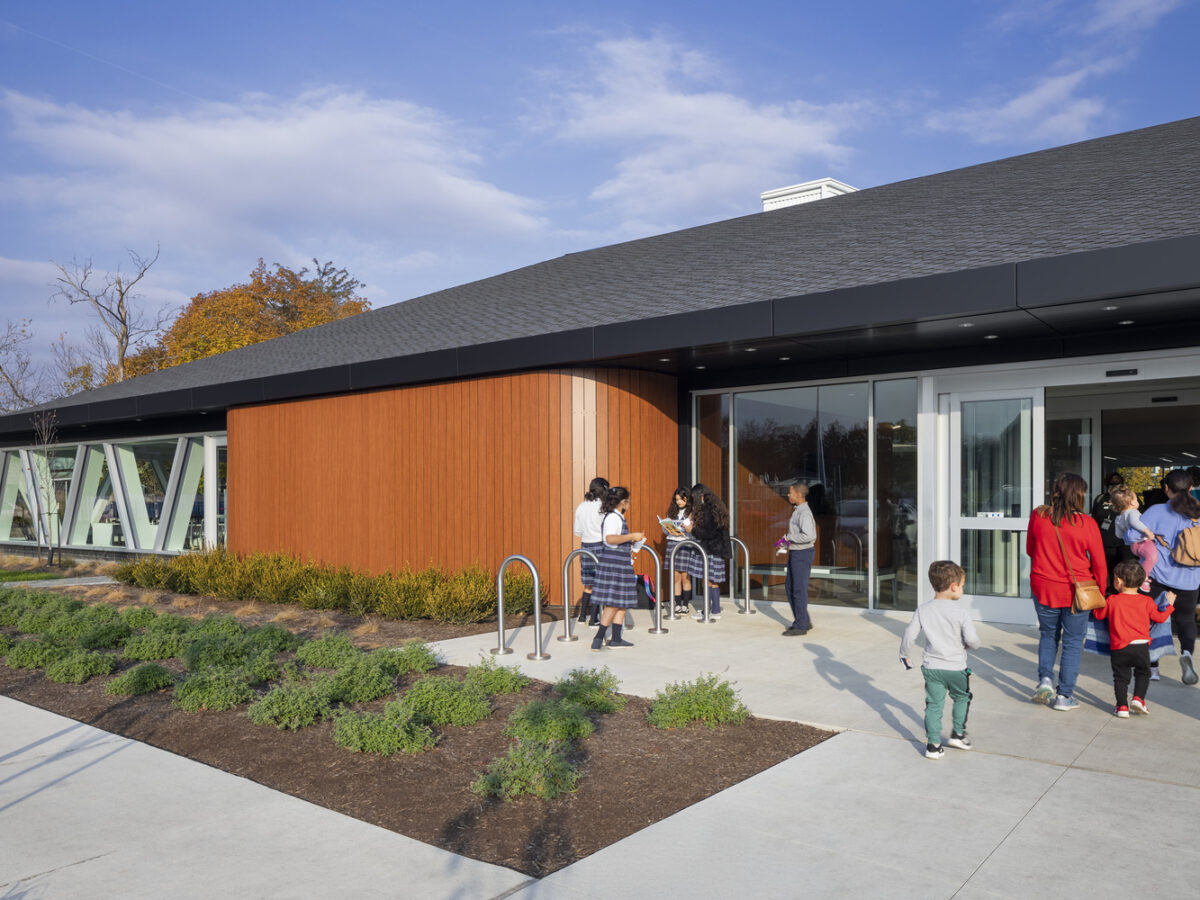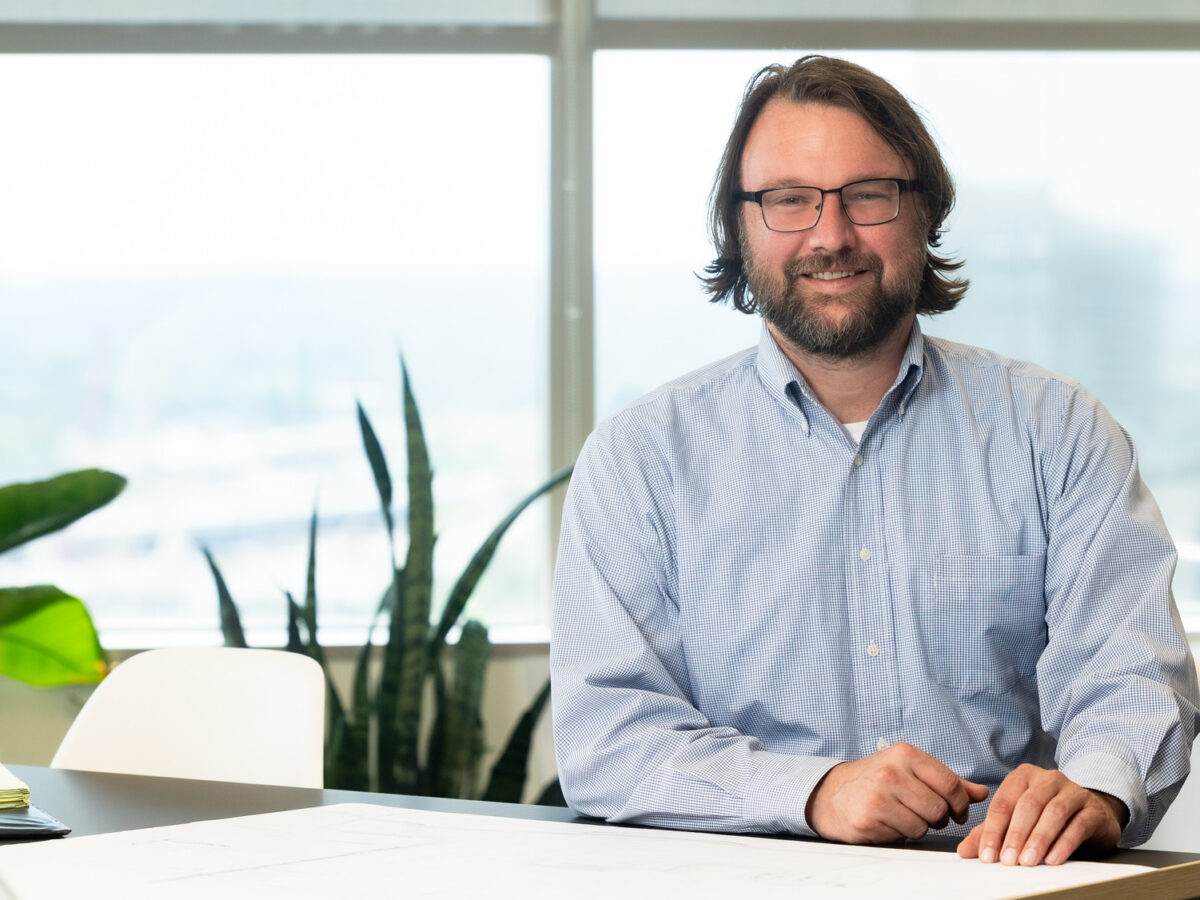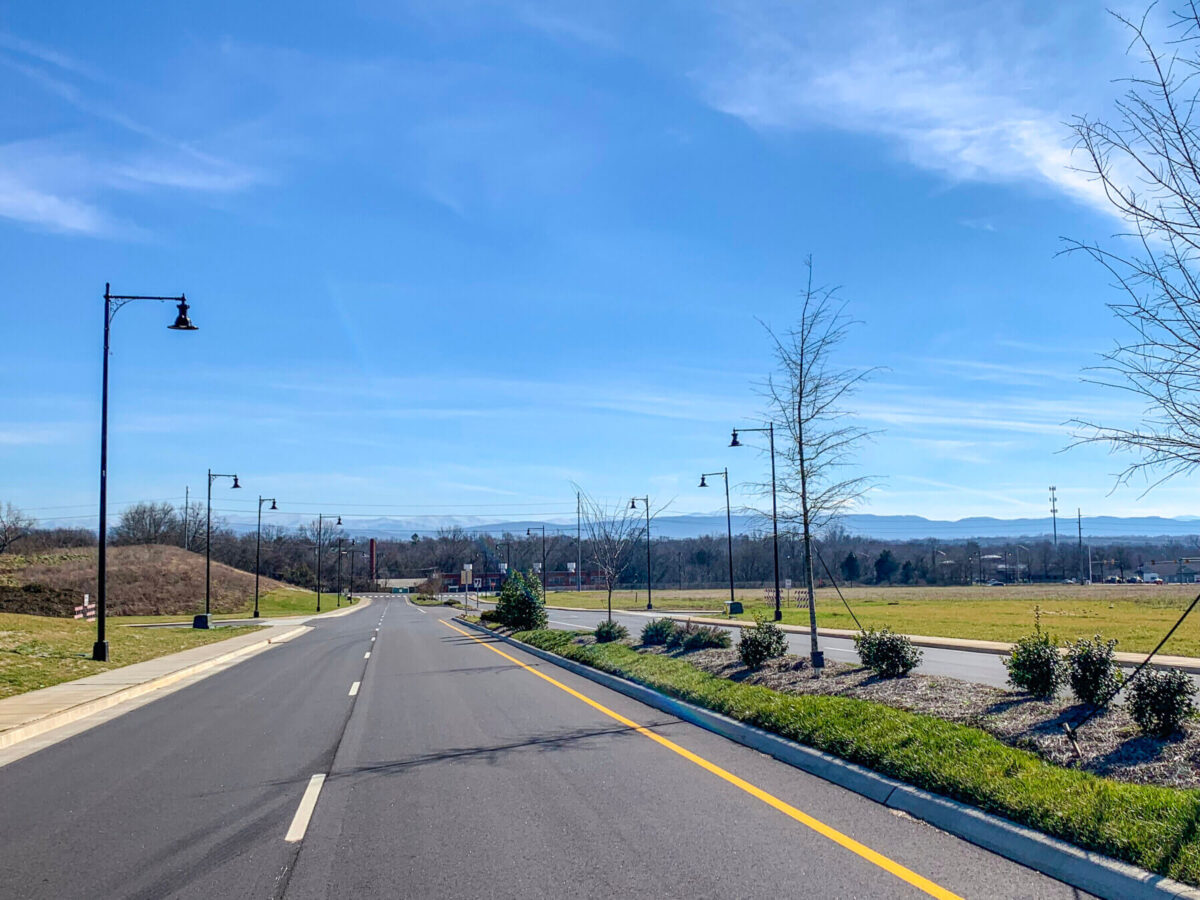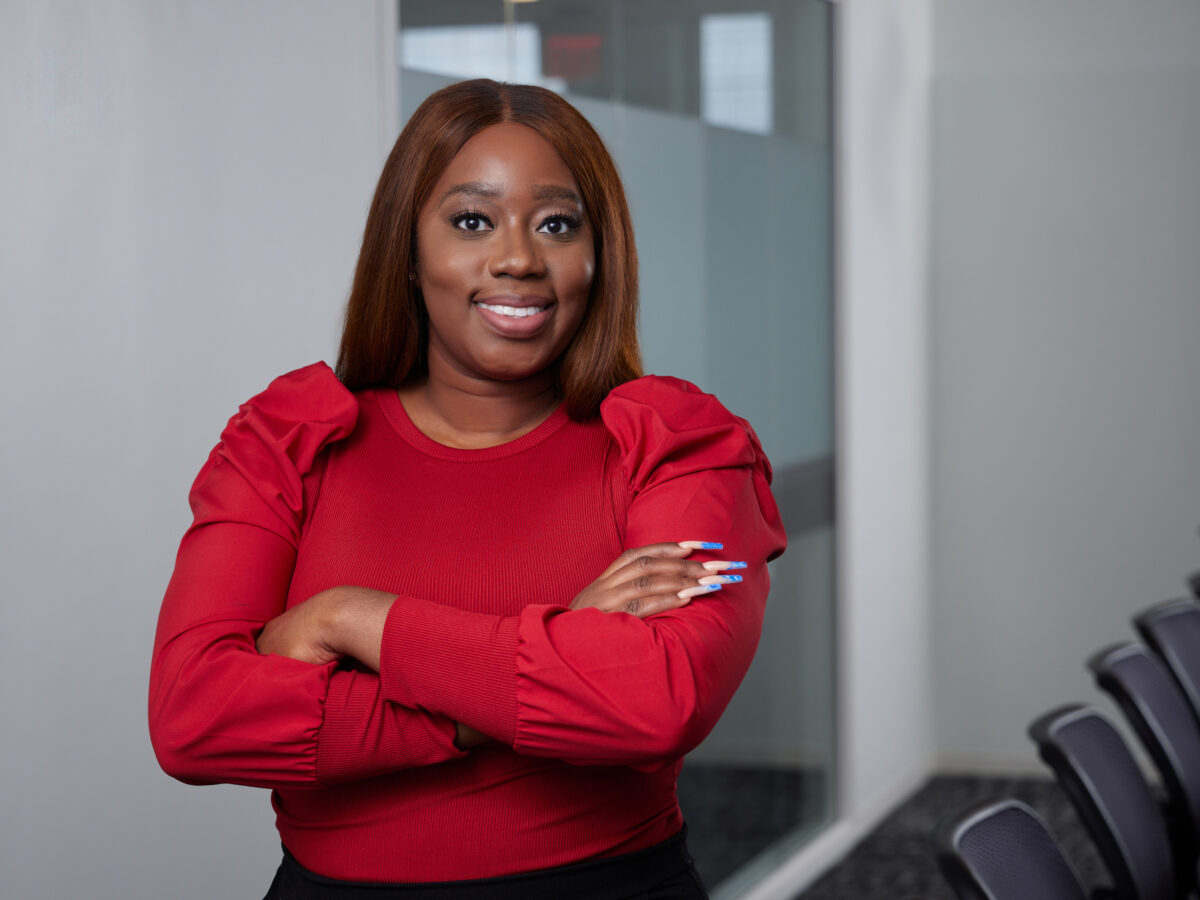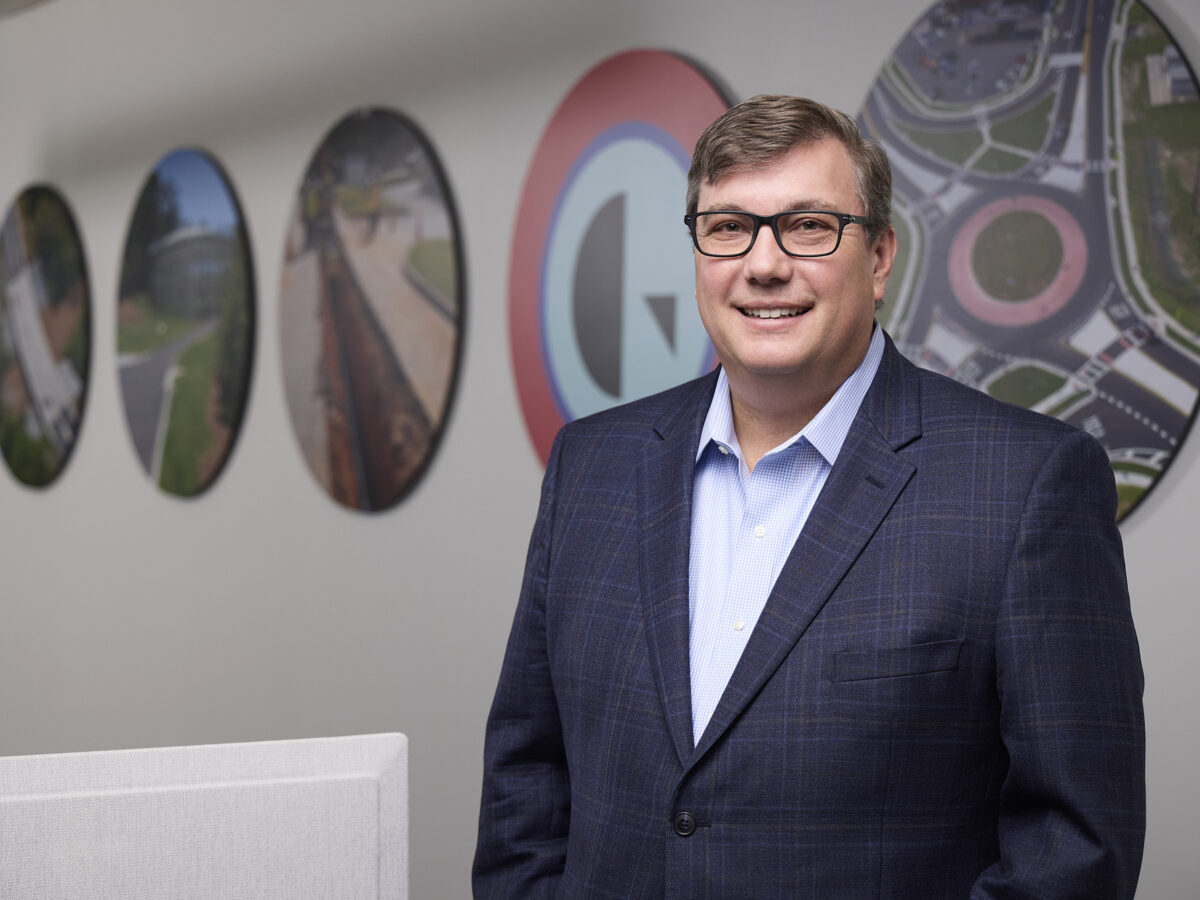At Gresham Smith, we take pride in the positive impact we have on our clients, our communities and each other. As a multi-market firm, we touch many areas of life—aviation and transportation infrastructure that connects communities; industrial manufacturing centers that contribute to economic growth and stability; healthcare facilities and water/stormwater systems that promote health, sustainability and resiliency; and livable urban environments and collaborative spaces that meet the ever-changing needs of today’s workforce.
Even after a global pandemic and in the midst of supply chain disruptions, the architecture, engineering and planning industry is strong in many areas, and we expect that the market will continue to stay strong. This means that we need to retain our current staff and hire additional talent to continue delivering for our clients.
This makes college recruitment more important than ever. We recently sat down with Tanner Roland, a senior corporate recruiter at Gresham Smith, and Lilly Howard, a corporate recruiter at the firm, to learn about Gresham Smith’s university recruitment strategy, what we look for in students, how we’re providing equitable opportunities, and even what the next generation of talent is looking for in a company.
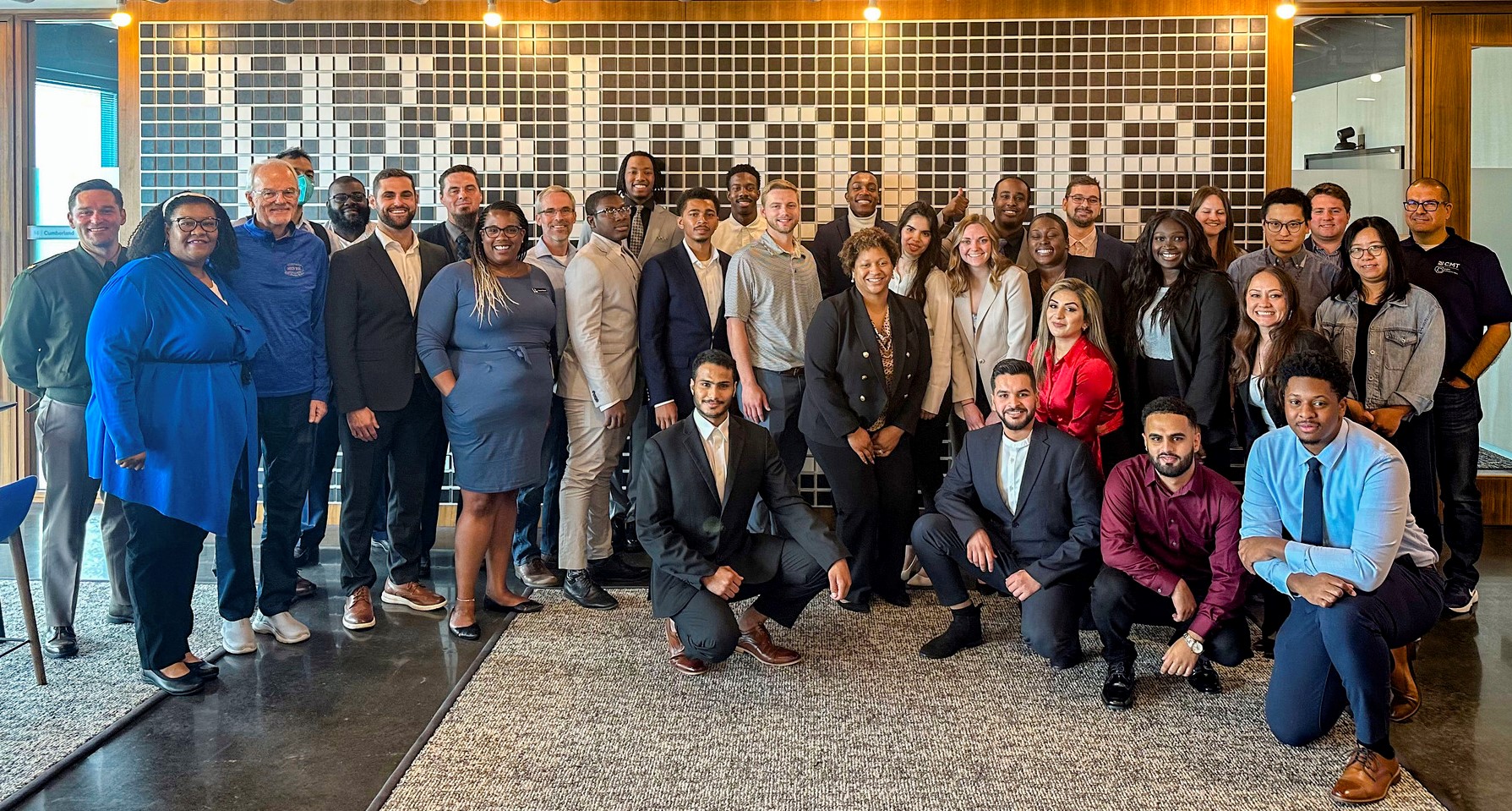
When it comes to our overall university recruitment strategy, what is our approach?
Tanner Roland: As a firm, we recognize that we need to be relationship builders on campuses, which means being fully engaged, not only with schools, but also with the leaders of the architecture, engineering and design programs. We also recognize that we need to engage with students early on in their college careers. If they’re first hearing about Gresham Smith as a junior or senior, it’s too late. Our goal is to establish brand recognition with first-year students, so by the time they’re looking for a job, they know who Gresham Smith is and see us as a trusted leader in the industry.
We also recognize that students want real-world experiences. We’re seeing an increasing number of requests to visit our offices and meet with or shadow our staff. We’ve even had university students use our office space to give their final semester presentations in front of our architects, engineers and interior designers. As a firm, we need to welcome them with open arms.
“… we need to engage with students early on in their college careers. If they’re first hearing about Gresham Smith as a junior or senior, it’s too late.”
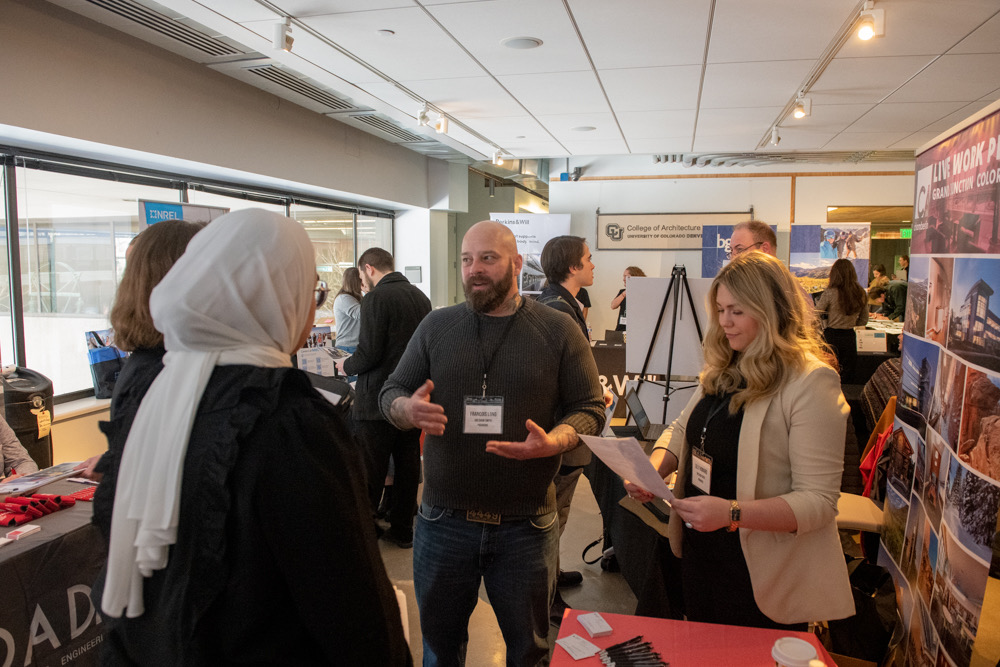
How does Gresham Smith approach career fairs?
Tanner: Colleges and universities host a variety of career fairs. Some include all majors, and all students are invited to attend. Other career fairs are discipline-specific and more narrowly focused. Student organizations also often host their own career fairs to increase engagement with students and industry partners.
Lilly Howard: And it speaks to who we are as a firm that our approach to career fairs isn’t simply: Show up. Put up a booth. Pass out flyers. We’re into creating lasting relationships with the department heads and professors at universities as well as the students. It’s about forging those types of connections.
Tanner: I see career fairs for all majors as an opportunity to increase brand recognition. We want students to see our logo and know who we are and what we stand for. Our tagline and brand promise is Genuine Ingenuity, and this also means that we have genuine people at our firm and provide genuine opportunities for growth and learning. This is the best time to draw them in and show them that we are, in fact, a top-notch organization where everyone can grow and thrive.
Lilly: We look at the university’s needs in terms of career services and how Gresham Smith can get involved, whether it’s hosting a lunch, giving a presentation to a class or attending some other type of on-campus event. So, when we show up at the university’s next career fair, we’re not just answering questions—they already know who we are, what we represent and what we do, as Tanner said. And perhaps most importantly, they’re coming to visit our booth because they want to deepen that personal connection with us.
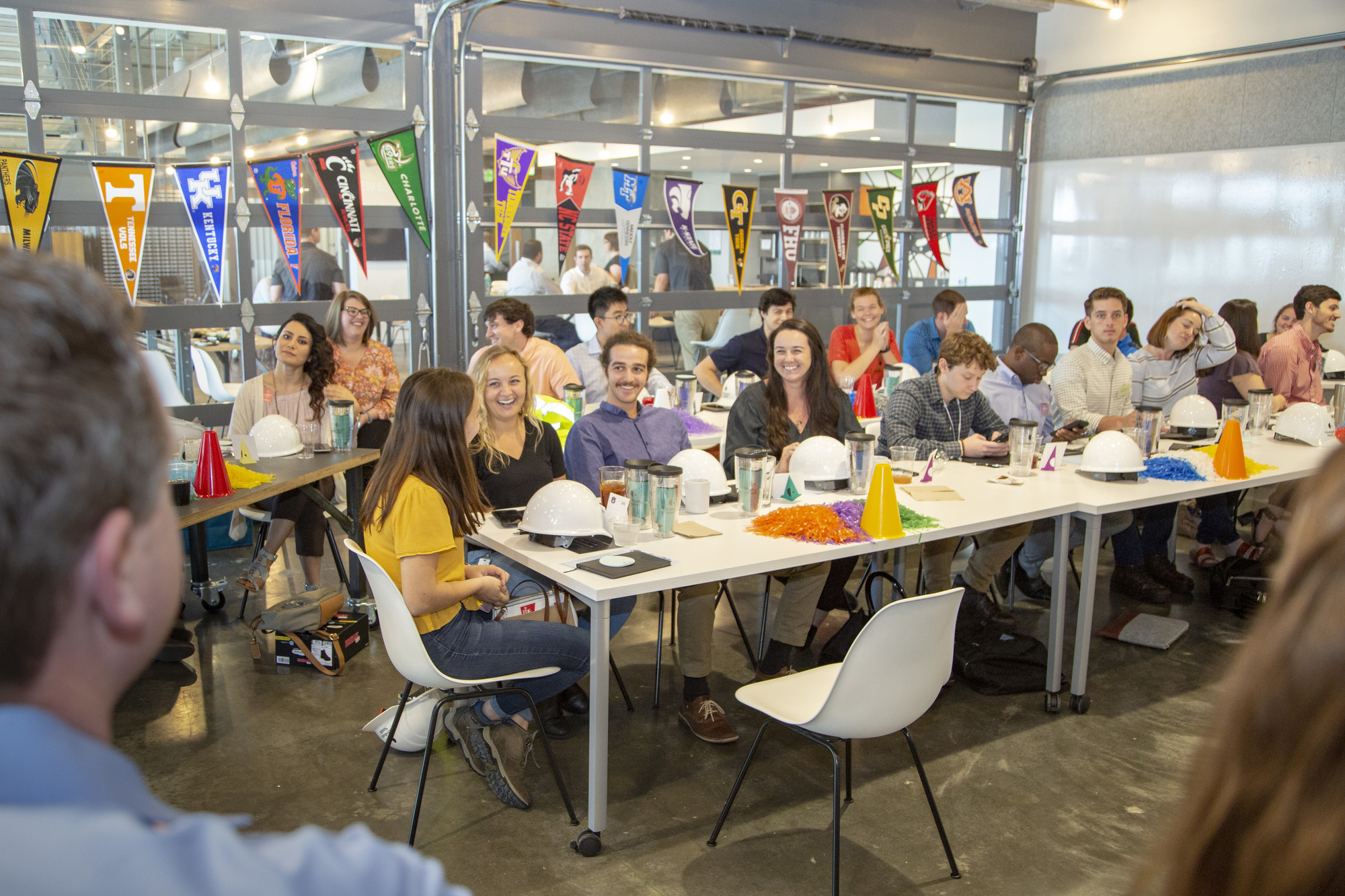
What traits are you seeing in students nowadays?
Tanner: Students these days are so different, but in a beautiful way. They’re passionate about making the world a better place and improving it for others, which is why they want to know about Gresham Smith’s diversity, equity, inclusion and belonging efforts, sustainability practices, and more.
They’re also asking us hard-hitting questions. At career fairs I’ve been asked: “What is Gresham Smith doing to advance the role of minority women in Engineering? How are you being sustainable and protecting the environment with your designs? Can I feel confident that my supervisor will understand my personal needs and respect my beliefs?”
What’s also interesting is that students want to find a company that they can stay with. They want a place to work where they can feel secure and supported in their ambitions. As a firm, we’re trying to match that.
“It speaks to who we are as a firm that our approach to career fairs isn’t simply: Show up. Put up a booth. Pass out flyers. We’re into creating lasting relationships…”
Do you have any advice for students on creating a good resume?
Lilly: My advice would be to worry less about trying to make your resume look unique, but instead provide a clear-cut, professional-looking resume, free of misspellings and grammatical errors, that truly gets to the point. Give an employer a good idea of what you were capable of in your previous position. For example, how did you carry out that role? How did you improve that position? And it’s a bonus if you can provide some sort of metric on that.
In other words, provide a how? or a why? that backs up your experience. It’s not enough to say: “I was an intern at ‘XYZ’ company from 2021 to 2022.” What were you doing there and how do you feel you brought value to the company? Your resume will stand out more to an employer if you provide those kinds of details. And believe me, I have seen it all—from rainbow-colored font to headshots! But please; just give me a resume that tells me about you, your skills, your relevant work experience, your professional accomplishments, and why you’re passionate about the industry.
What else do you think colleges and students should know about Gresham Smith?
Lilly: I think that when it comes to university recruiting, it’s more often than not a case of quality over quantity. Instead of spreading ourselves thin across the thousands of universities in the U.S.—which is all but impossible to do from a logistics point of view anyway—we’re trying to strengthen key relationships with colleges that want to have a hand-in-hand relationship with us and also have programs that we truly need. And we’re approaching them in an authentic way by emphasizing the strengths of our company culture and why Gresham Smith is such a great place to work in terms of professional growth and development as well as diversity.
A company can talk about its projects and the various opportunities they offer all day long, which is great. But this new generation is incredibly focused on the environment they’re going to be working in, which plays into what Tanner was saying earlier. They want to feel invested in and supported. They want to be able to form lasting relationships.
At the end of the day, recruiting is about winning over the hearts and minds of students. And there are many ways a recruiter can go about that. We just want to be sure that we’re doing it the right way so that we continue to attract the right candidates for our firm and that particular position. And, of course, that perfect match has to work both ways!
